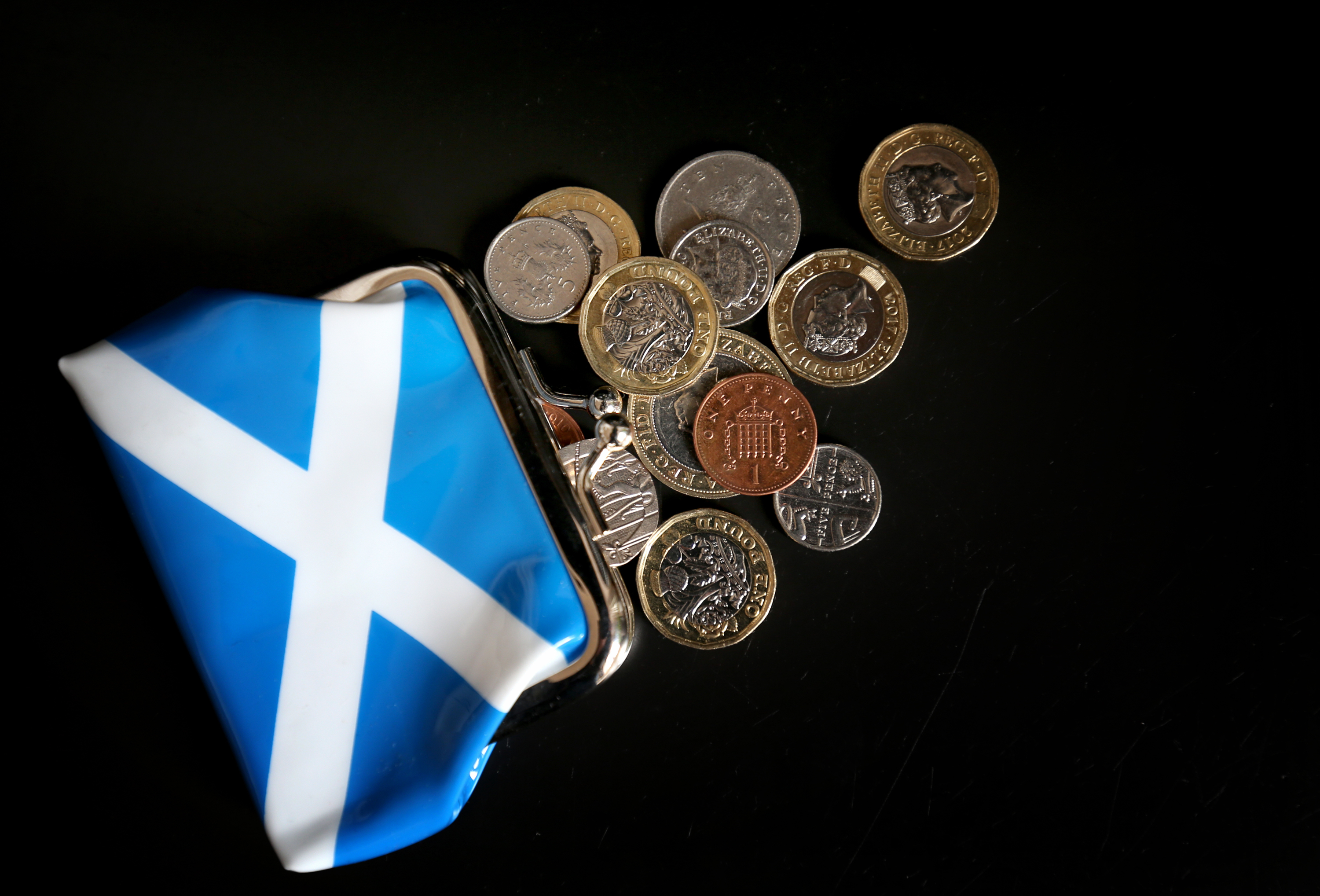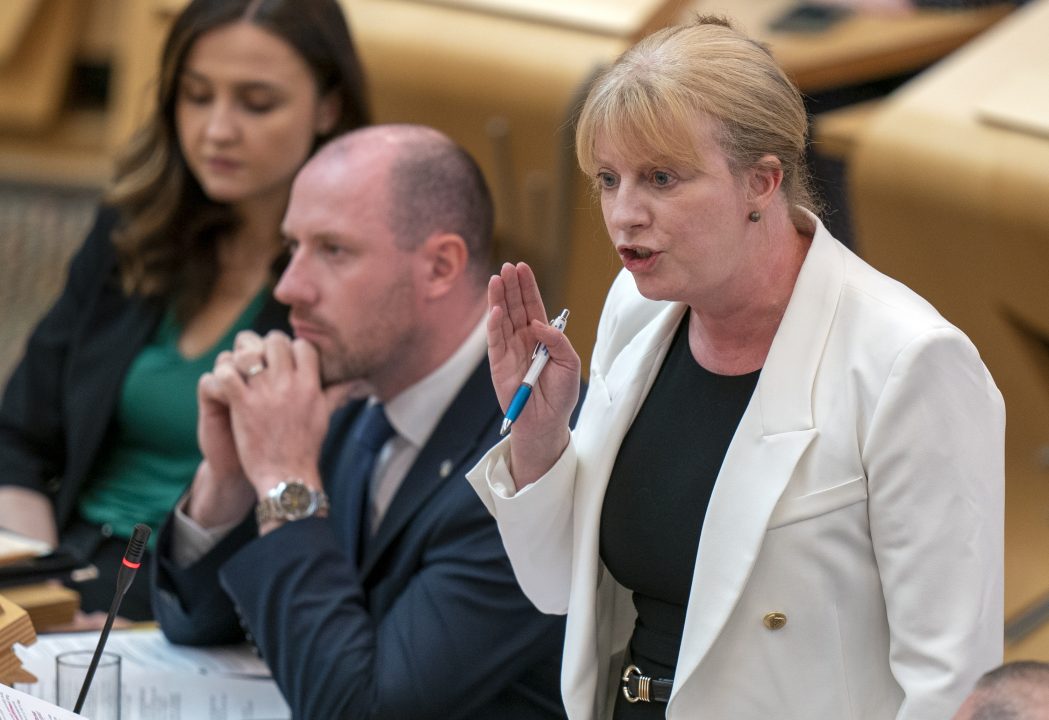The Scottish Government is giving a “misleading impression” of spending rises in key areas in its budget for 2024-25, a think tank claimed, as it warned the health service could be facing a real terms cut in funding.
The Institute for Fiscal Studies said spending on the NHS could drop by 0.7% in real terms in the coming year.
That comes despite official budget documents showing a 1.3% real-terms year-on-year increase – with the IFS explaining these figures did not include “significant” funding top-ups for health in 2023-24.
Experts at the think tank said, when these were accounted for, “health spending is set to fall by 0.7% in real terms between this year and next”.
Looking at funding for local government, Scottish Government figures showing a 7.9% cash rise – or 6.2% increase in real terms – give a “seriously misleading picture”, the IFS said.
Its latest report on the Scottish budget pointed out that councils received “sizeable in-year top-ups” amounting to £310m in 2023-24, as well as being permitted to use some capital funding to cover day-to-day spending.
The IFS said: “After accounting for these factors, and the requirement for councils to freeze council tax in order to receive their full grant funding, we estimate that the funding available to councils will increase by just 3.5% in cash terms (1.8% in real terms) next year.”
 PA Media
PA MediaThink tank associate director, and one of the report’s authors, David Phillips said: “By omitting in-year top-ups to spending plans this year, the official Scottish budget documentation gives a misleading impression of how the amounts of funding available for the health service, councils, and many other services are set to change next year.”
Claiming that the Scottish Government’s spending plans in the budget for specific service areas “ignore in-year top-ups to budgets this year and so typically overstate the increases in spending next year”, the IFS said spending on social justice would be down by 10.2% in real terms in 2024-25, with the budget for the wellbeing economy, fair work and energy portfolio falling by 5% in real terms.
Taken together it said the increase in income tax for those earning £75,000 a year or more – who will pay the new “advanced rate” of 45p – and the freeze in council tax would “slightly reduce the funding available for devolved public services and social security spending in Scotland”.
This is because the new tax band will raise an estimated £82m, while the Government will give local authorities £144m for the council tax freeze.
But it said that taken together, the two changes were progressive, with the IFS pointing out lower income households would not be impacted by income tax rises, but will benefit from the freeze in council tax, while higher earners will “in many cases see a much bigger increase in income tax bills than they will save in council tax, reducing their net income by an average of 0.7%”.
Changes in income tax rates in Scotland mean that someone earning £90,000 a year north of the border will pay £2,846 a year more tax than they would in the rest of the UK in 2024-25, with this up from £2,406 this year, while someone earning £125,000 in Scotland will pay £5,221 a year more next year, up from up from £3,356.
Looking ahead, the IFS warned while current forecasts suggest a “substantial real terms increase” in resource funding for the Scottish Government in 2025-26, from 2026-27 onwards, Holyrood ministers could see “much smaller increases in resource funding – that could easily be more than entirely absorbed by the NHS and other priority areas, necessitating cutbacks to many other services”.
Here the think tank stated: “The picture for 2026–27 onwards is much tougher.”
Bee Boileau, a research economist at IFS and another of the report’s authors, said there was “significant uncertainty about just how much funding the Scottish Government will have available” after 2024-25.
She said: “Funding from the UK Government will depend on how much the UK Government decides to spend, and how it is allocated between different services, which we won’t have real clarity on until after the UK general election.
“And funding from devolved tax revenues will depend not only on how fast revenues in Scotland grow, but also on how that compares with growth in revenues in the rest of the UK, and how accurate the forecasts of both of these are. That’s a lot of moving parts and must be a real barrier to medium-term planning.”
But the expert said that “pain is almost certainly coming” as she said that barring either a major economic upswing, or further big tax rises, the Scottish Government will face “difficult decisions for a range of public services”.
Scottish Conservative finance spokeswoman Liz Smith said: “The IFS analysis makes it clear that the impact of the SNP’s savage tax-and-axe budget will be even worse than it first appeared.
“They point out that omitting in-year top-ups misleads the public and will lead to a real-terms cut in health spending.
“Councils will also lose out by receiving only around a third of the increase Shona Robison was trying to suggest.”
Labour finance spokesman Michael Marra said: “The SNP is planning to axe public services and is trying to dupe the public about it – but no-one is fooled.
“These cuts will wreak havoc at a time when local government is already at breaking point and almost one in six Scots are stuck on NHS waiting lists.
“No amount of dodgy sums and spin can mask the damage this SNP government is inflicting on lifeline services.
“The SNP must come clean with Scots about its spending plans for next year and set out how it will protect essential services.”
A Scottish Government spokesperson said: “Scottish ministers have provided a real terms increase in health funding when comparing the opening position for 2024-25 with 2023-24. This includes fully passing on all health consequentials received for 2024-25.
“As ministers have said, this Budget was delivered against the backdrop of a UK autumn statement that prioritised tax cuts at the expense of spending on public services.
“As this IFS report acknowledges, additional in-year funding is crucial to maintaining that real terms growth, requiring the UK Government to prioritise additional funding for health over the course of the year.”
Follow STV News on WhatsApp
Scan the QR code on your mobile device for all the latest news from around the country


 PA Media
PA Media

























